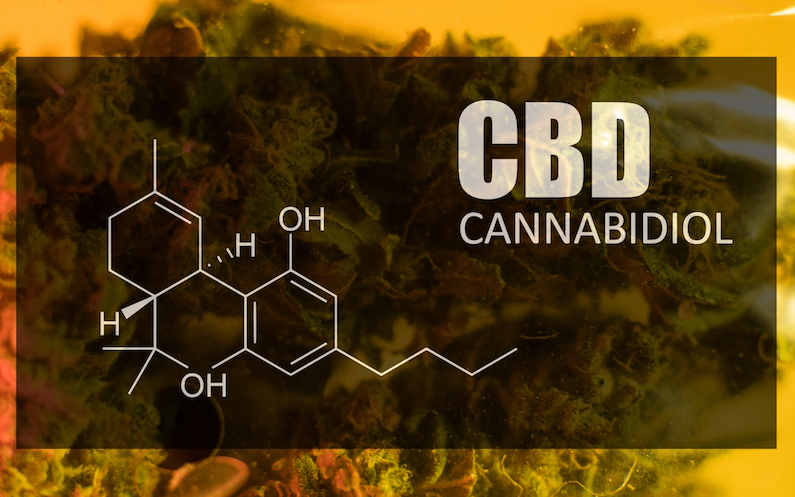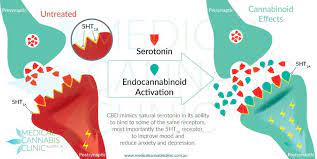The most basic way CBD works with our body is by blocking the breakdown of our own endocannabinoids, allowing our bodies to use more of what it’s already naturally producing.
CBD acts a “reuptake inhibitor” that prolongs the natural life cycle of our own natural endocannabinoids so they can provide more therapeutic benefits.
CBD can also alter and adjust how your cannabinoid receptors function.
THC binds directly to both CB1 and CB2 cannabinoid receptors like a key fitting into a lock and activates these receptors, causing them to send a signal that creates a physiological response (less pain, less inflammation, lower blood pressure, mild euphoria, relaxation, etc.). However, CBD doesn’t work this way. Instead of binding with cannabinoid receptors to initiate a signal itself, CBD fine-tunes the signaling that’s been triggered by THC or an endogenous cannabinoid.
CBD can actually lessen or neutralize the psychoactive effects of THC.
“CBD modulates non-cannabinoid receptors as well. It directly activates the 5hT (serotonin receptor and acts as an atypical antipsychotic), binds directly to TRPV1 (Pain, inflammation, hypothalamus control). It blocks GPR55 (a 3rd cannabinoid type receptor) which through a series of events, decreases the breakdown of bone, acts as an antiseptic, prevents cancer cells from growing and many other things. CBD also changes the shape of the CB1, preventing THC from directly binding to it. (This is why balanced strains of cannabis give less anxiety and paranoia; the CB1 receptors are not overstimulated by THC.)”



